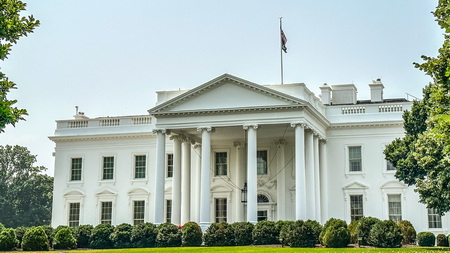
President Joe Biden on March 31 announced the first part of his sweeping economic growth proposal focused on infrastructure and clean energy – a $2.3 trillion, eight-year plan that White House officials said would be funded, over 15 years, by corporate and international tax increases. (Wall Street Journal and White House Fact Sheet: The American Jobs Plan, March 31)
Why It Matters
- The enormous scale of the proposal seeks to use federal spending to address a wide-range of economic and social issues widely defined as infrastructure while strengthening America’s long-term competitiveness against challengers like China.
- Biden stated, “It’s a once-in-a generation investment in America, unlike anything we’ve seen or done since we built the Interstate Highway System and the Space Race decades ago.” (Remarks by President Biden on the American Jobs Plan, March 31)
- The White House proposal would direct federal spending to transportation, manufacturing, buildings, schools, water systems, broadband, health care, and energy infrastructure assets. (USA Today, April 1, “These 4 charts show where the money would go”)
- A “Made in America Tax Plan” would pay for the proposal. It would increase the corporate tax rate from 21% to 28%; set the minimum tax for multinational corporations with U.S. operations at 21 percent; and eliminate certain incentives affecting the offshoring of jobs. (The Hill, March 31)
Impact on CRE

- The Biden proposal would spend $213 billion to produce, preserve, and retrofit two million homes and commercial buildings. In particular, it recommends:
- Tax credits and grants with a goal of one million new and renovated, affordable and efficient, rental housing units;
- Extend and expand energy efficiency tax incentives for homes and commercial buildings;
- A new competitive grant program for cities and localities that eliminate exclusionary zoning policies – like minimum lot sizes, mandatory parking requirements, and density restrictions;
- Mobilize private sector investment in distributed energy resources, and to de-carbonize the electric grid;
- Drive clean energy deployment by requiring federal buildings to purchase 24/7 clean power; and
- Support private development of idle Brownfields into hubs of economic growth.
- The proposal does not affect the federal eviction moratorium, which was recently extended by the Centers for Disease Control and Prevention (CDC) until June 30. (CDC order and CNBC video, March 30)
Transportation Infrastructure
- $115 billion in the White House proposal would focus on repairing Main Street roads, highways and bridges.
- $80 billion would be devoted to inter-city high-speed rail to address Amtrak’s repair backlog and modernize the Northeast Corridor. This is of significance to national and regional projects like “Gateway,” the rail tunnel project between New York City and New Jersey.
What’s Next
- Senate Minority Leader Mitch McConnell (R-KY) said, “This proposal appears to use ‘infrastructure’ as a Trojan horse for the largest set of tax hikes in a generation,” and that Biden’s proposal “is not going to get support on our side.” (The Hill, March 31 and Bloomberg, April 1)
- House Speaker Nancy Pelosi (D-CA) signaled she would like to see an infrastructure bill pass the House by July 4. She added that “hopefully” a final infrastructure package will include a repeal of the $10,000 cap on state and local tax deductions. (Associated Press, March 31 and BGov, April 1)
- The Roundtable is part of the Build by the 4th coalition, led by the U.S. Chamber of Commerce, which encourages the Biden Administration and Congress to pass a comprehensive infrastructure deal by Independence Day 2021.
- The Biden administration is planning a second legislative package for April that could seek an additional $1 trillion to expand family support such as the child tax credit and paid leave. (B-Gov, March 31)
President Biden’s infrastructure plan will be a focus of discussion during The Roundtable’s April 20 Spring Meeting (remote).
# # #












